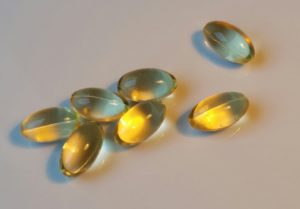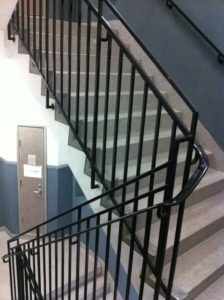 It has long been known that eating oily fish (e.g. salmon, sardines) has health benefits for the heart. But it also looks like regularly eating sardines may be a good way to lower the risk of getting type 2 diabetes, as well as improving heart health.
It has long been known that eating oily fish (e.g. salmon, sardines) has health benefits for the heart. But it also looks like regularly eating sardines may be a good way to lower the risk of getting type 2 diabetes, as well as improving heart health.
In a study (conducted in Spain) 152 persons at risk for developing type 2 diabetes ("pre-diabetes") were randomly assigned to one of 2 groups for 1 year: Group 1 regularly ate sardines + followed a diabetes preventive diet, or Group 2 ate the same diabetes preventive diet, but without sardines. All participants were 65 years or older.
They found that after 1 year, the sardine group had greater health improvements than the non-sardine group. Fewer in the sardine group were still in the prediabetes group, and fewer had developed type 2 diabetes. The sardine group also had decreased triglycerides (good), greater increases in healthy HDL cholesterol, reduced insulin resistance, and lower blood pressure, as compared to the non-sardine group.
The sardine group also had higher taurine levels in the blood, as well as increases in nutrients linked to health benefits, including omega-3 EPA and DHA, vitamin D, and fluorine. Taurine has antioxidant and anti-inflammatory benefits.
What was their weekly consumption of sardines? They consumed 200 g of canned sardines in olive oil per week - eaten as 100 g servings twice per week. Which is a little less than eating two of the little 125 g cans of sardines in olive oil available at the grocery store. It was recommended that they eat the entire sardine, including bones, due to their rich content of calcium and vitamin D. [By the way, while the researchers don't discuss this - increased extra virgin olive oil consumption also has health benefits.]
Medscape article: Sardines Linked to Reduced Type 2 Diabetes Risk
Excerpts from Medical Xpress: Eating sardines regularly helps prevent type 2 diabetes
The health benefits of sardines and oily fish are widely known: their high levels of unsaturated fats help to regulate cholesterol levels and prevent the onset of cardiovascular diseases. However, the benefits don't end there. ...continue reading "Eating Sardines Linked to Lower Diabetes Risk"

 Once again a study finds that taking supplements can be problematic. This time it's fish oil supplements for heart health. Researchers
Once again a study finds that taking supplements can be problematic. This time it's fish oil supplements for heart health. Researchers  Covid-19 infections are linked to many long-term health problems, but now a surprising one - an increased risk for erectile dysfunction in sexually active men. University of Rome researchers
Covid-19 infections are linked to many long-term health problems, but now a surprising one - an increased risk for erectile dysfunction in sexually active men. University of Rome researchers  Another study has been published finding that higher consumption of fruits and vegetables (5 servings a day) is associated with a longer life.
Another study has been published finding that higher consumption of fruits and vegetables (5 servings a day) is associated with a longer life. While filling out a sample
While filling out a sample  Good news for coffee lovers! Drinking 1 or more cups of coffee a day was associated with a reduced risk of heart failure in three large heart disease studies. However, drinking decaffeinated coffee was not.
Good news for coffee lovers! Drinking 1 or more cups of coffee a day was associated with a reduced risk of heart failure in three large heart disease studies. However, drinking decaffeinated coffee was not. There is strong evidence for a link between the foods a person eats, the microbes that live in the person's gut (gut microbiome), and the person's health, according to a large
There is strong evidence for a link between the foods a person eats, the microbes that live in the person's gut (gut microbiome), and the person's health, according to a large 
 Doctors now have an easy test for determining your heart health, according to European researchers. Anyone can take the test - just need access to staircases and wear comfortable sneakers or shoes. The test: time it takes to climb 4 flights of stairs or 60 steps.
Doctors now have an easy test for determining your heart health, according to European researchers. Anyone can take the test - just need access to staircases and wear comfortable sneakers or shoes. The test: time it takes to climb 4 flights of stairs or 60 steps. What you eat is all important for health. A recent
What you eat is all important for health. A recent  It is great to find a good news study these days, and this one is especially good news for chocolate lovers. Researchers
It is great to find a good news study these days, and this one is especially good news for chocolate lovers. Researchers